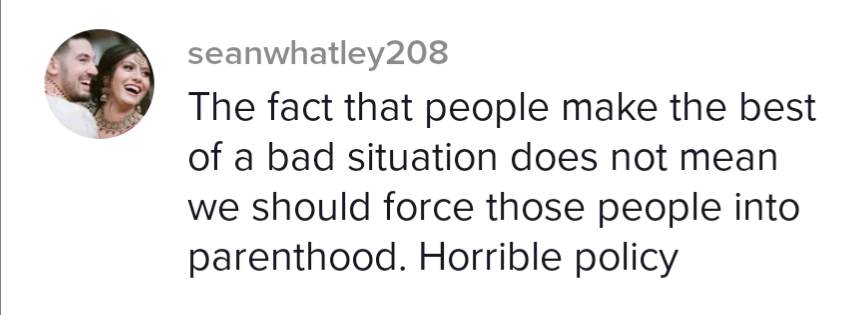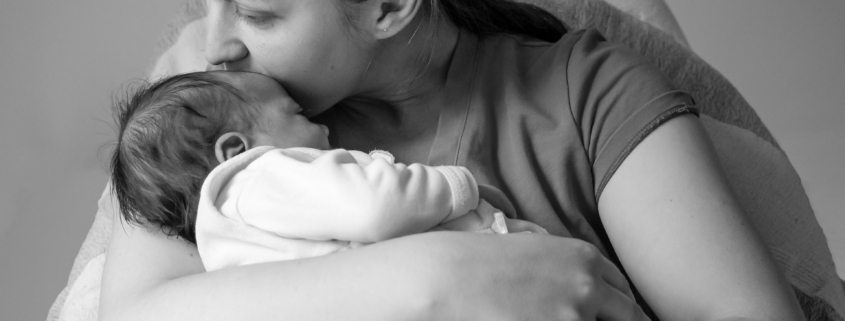5 reasons to talk about women who don’t regret being denied abortion
The Turnaway Study found that 96% of women who gave birth after being denied an abortion ended up saying they no longer wished they’d aborted. (More details here.)
Pro-choice people often think we cite this statistic as a reason to outlaw abortion. Examples:



We don’t think abortion should be outlawed because when women give birth after being denied abortion, nearly all of them end up saying they no longer wish they’d aborted. We think abortion should be outlawed because it kills valuable human beings. We talk about the emergent positive emotions of women who were denied abortion for other reasons.
1. Many pro-choicers seem to believe if women can’t get abortions, it will basically ruin their lives.
They suggest children born after abortion denial will be unwanted, unloved, possibly abused, possibly put in foster care, or, if their mothers are “trapped” raising them, the mothers will be resentful and regretful. The Turnaway Study findings contradict that idea.
[Read more – Abortion bans don’t lead to a surplus of unwanted children.]
2. We want women who are considering abortion to be aware that women who couldn’t abort overwhelmingly didn’t regret it.
In fact Turnaway Study cited “bonding with the child” as a major contributing factor to women viewing their abortion denial positively.
3. We want people who support abortion but are unlikely to seek one to have a fuller picture of where many women are coming from when they consider abortion (or when they can’t get an abortion).
A lot of abortion supporters talk about the abortion decision in a very idealized way, as if it’s nearly always made with perfectly informed consent, absent pressure, fear, or panic, and with clear foresight. That’s often untrue. In fact the Turnaway Study reported that only one week after abortion denial, already over a third of these women (35%) said they no longer wished they could have aborted. This suggests a remarkable level of ambivalence, and it undermines the narrative of the idealized abortion decision.
4. We want people – especially people who oppose abortion – to understand that just because a woman considers, or even tries to get, an abortion, doesn’t mean she would be a bad mother.
In fact, elsewhere the Turnaway Study found that over 90% of women who gave birth after abortion denial emotionally bonded to their children just fine. (More details here.) And that statistic was measured when children were 18 months or younger. Given the Turnaway Study evidence of women’s emergent positive emotions up to 5 years after abortion denial, it’s reasonable to believe maternal bonding may have also increased over that time frame.
5. We want people to recognize factors that increase or decrease odds of women regretting abortion denial.
For example, women with stronger social support were less likely to regret not aborting, while women who placed for adoption were more likely to regret not aborting. Many women seek abortion not because they definitely want to abort, but because they fear they won’t have the resources to take care of their babies. The solution to that is not to facilitate abortion access. It’s to empower women with the resources to care for their babies.
This blog post is available as a Twitter thread here and on TikTok here:



